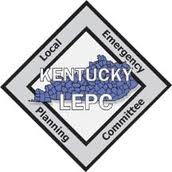The Local Emergency Planning Committee (LEPC) is a product of federal legislation that was passed in the wake of the Union Carbide disaster in Bhopal, India, in December 1984. Highly toxic Methyl Isocyanate gas was released from the pesticide plant, causing the immediate death of thousands and injuries to hundreds of thousands.
In an attempt to prevent similar occurrences in American communities, Congress passed the Emergency Planning and Community Right-to-Know Act (EPCRA), also known as Title III of the Superfund Amendments and Reauthorization Act (SARA), in 1986.
EPCRA helps to increase public knowledge and access to information regarding hazardous substances and extremely hazardous substances (EHS) that are stored, manufactured, or used in facilities. LEPCs are volunteer organizations that represent emergency responders, industry, government, education, health services, media, and community groups. The main function of the LEPC is to provide joint emergency planning for EHS facilities, training, and public right-to-know outreach.